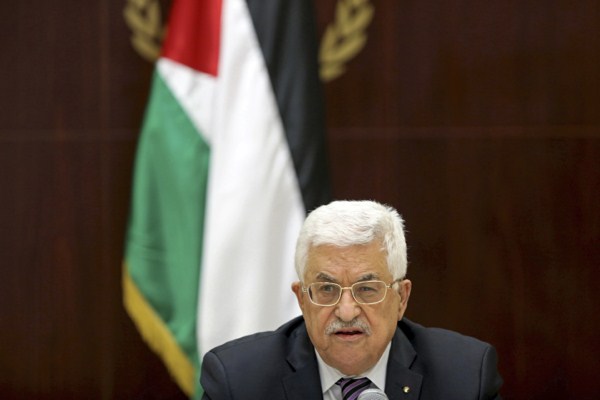Earlier this month, a few days after the Holy See finalized a treaty to formally recognize Palestine as a state, Palestinian President Mahmoud Abbas visited the Vatican, where Pope Francis set off a minor frenzy, including criticism from Israelis, by calling Abbas “an angel of peace.” It wasn’t much of a controversy, in the end, though Israel remains opposed to the Vatican’s official recognition of Palestinian statehood, which is another step in Abbas’ efforts to secure more international recognition of Palestine, even as Israel’s occupation of the West Bank appears more permanent and its blockade of Gaza continues.
But Abbas’ symbolic victories abroad appear to be doing little to reverse his growing unpopularity at home. Palestinians are increasingly dissatisfied with the Palestinian Authority (PA)—which is dominated by Abbas and his political party, Fatah—and the sorry state of Palestinian politics and democracy he has overseen. Ten years into what was supposed to be a four-year term in office, following the death of longtime Palestinian leader Yasser Arafat, Abbas must contend with more discontent, as he rules by presidential decree; the Palestinian Parliament hasn’t met since 2007.
In April, Hamas won student council elections at the West Bank’s prestigious, liberal Birzeit University, considered a bellwether of Palestinian politics. As Diaa Hadid reported in The New York Times, “student elections are seen as an important benchmark of the Palestinian political mood, particularly since there has been no national balloting since Hamas won the legislative contests in 2006.”

